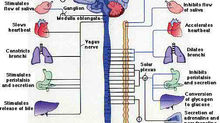Addiction and Environment
- Tom Lynam
- Feb 10, 2015
- 3 min read
We develop harmless, if not positive habits throughout our lives; brushing our teeth, driving, exercising. The brain is designed to 'chunk' information so that we do not have to think about what we are doing, once an action has been repeated enough it will become habit through chunking, saving the brain time and effort for future recurrances. When an addiction is developed we see that when we complete a particular action dopamine, a neurotransmitter thats makes us feel good, is released. Over time the brain learns that the behaviour makes it feel good and reward pathways are developed to accomodate the developing addiction, similar to the chunking mechanism of habitual actions. In a previous post Generalised Reality Orientation within Hypnotherapy has been discussed. The consequence of the phenomena is relevent in that the individual is removed from their usual environment, this has significant benefits in relation to breaking addictions and habits. A re-cap can be found here: http://www.mentalstates.net/add_a.html
Today focusing on some of the conclusions drawn from Lee Robins study of heroin use and addiction among American soldiers in Vietnam. The use of Heroin among GI's was highly prevailant with 20% stating they were psychogically addicted and around 23% testing positive prior to returning home. Robins continued to monitor these individuals when back in the states and found that with the correct intervetions 95% were able to remain free of opiate use compared to a relapse rate of over 65% within the domestic heroin using community. This finding challenged the attitudes of the day, that heroin was a drug which, once addicted, was almost impossible to escape from. So the question arises, what allowed the veterans of the vietnam war to be particularly successful in going clean?
The answer lay in the environment. While users back in the states were exposed to a consistent environment the veterans' environment changed drastically. Both habits and addictions are intertwined with our environment, as information becomes chunked, becomes subconscious, more and more of the associated behaviour is given over to the environment. Cue for behaviours lie everywhere, from the doorway at work which is associated with a cigarette, a regular pub with a pint, a friend's house where heroin is taken. Robins concluded that the environmental stimuli in vietnam was intertwined with heroin use, once the cues associated with using were removed the reward pathways and chunking mechanisms were not being used thus allowing the soldiers an opportunity with which to break from their addictive behaviour.
By doing things differently and changing routine, habitual and addictive behaviour can be disrupted and new behaviours established. Introducing new activities, or doing regular activities at a different time or place can avoid using the mechanisms the brain has established to perpetuate addiction. This can take the form of going swimming on tuesdays when ordinarily a person would meet with friends for a drink. Even performing the behaviour with the non-dominant hand can swing the conscious mind into action giving the individual increased control over their actions, leading to a questioning of action. Collectively we are unaware to the extent our environment governs our actions and thought processes and how much we are influenced by these environmental cues. Try mixing up your routine and introducing new activities and notice how much more aware you are of your behaviour. A good measure of awareness is how good is your recollection of events. Try it, you might like it, maybe you will become addicted to variety.









Comments